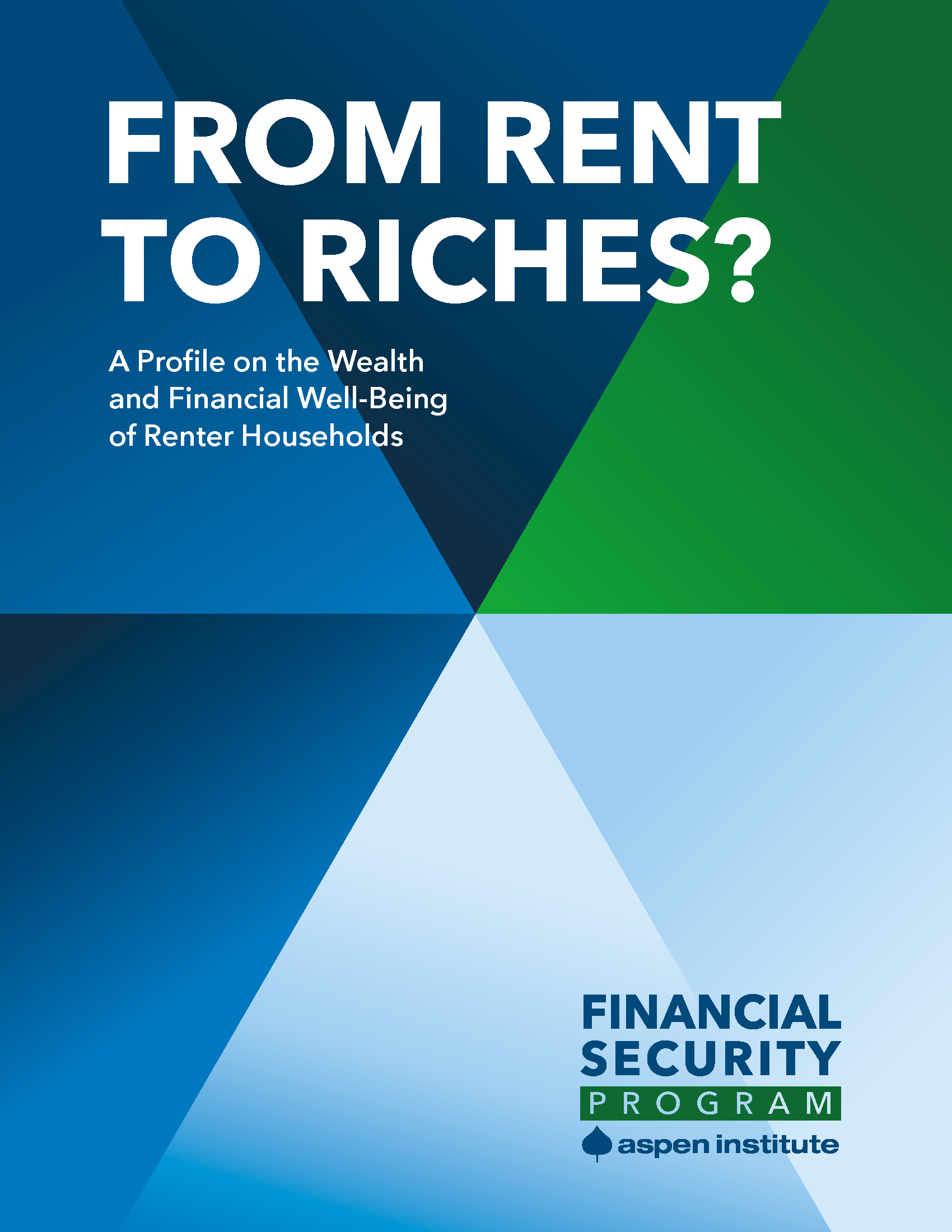
The Aspen Initiative on Financial Security held its fourth annual Financial Security Summit in July in Aspen, Colorado. This is the first in a series of seven posts describing each Summit session. Links to the other posts and an overview of the Summit can be found here.
The Summit began the evening of July 15th with an opening reception and panel titled “Pathways to Building Wealth for All Americans,” featuring former Senator Tom Harkin, New York University Professor and former Deputy Director of the National Economic Council Lily Batchelder, Urban Institute President Sarah Rosen Wartell, and moderated by Aspen Institute Executive Vice President Elliot Gerson. Gerson interviewed the three panelists about their experiences with research and policy-making in the areas of retirement savings, homeownership, and tax policy. The panelists also offered their predictions for how these issues will be framed in the upcoming presidential election.
Tom Harkin spoke passionately on the need to better prepare younger generations of Americans for retirement. “The next wave of retirees have no pensions and little savings,” said Harkin, “The only thing they have that’s secure is Social Security.” Harkin described retirement security as “the most underreported crisis” facing America; although a vast majority of Americans do not feel prepared for retirement, the issue has taken a backseat in Congress. Harkin’s pension reform bill from the previous Congress, the USA Retirement Funds Act, would create a retirement plan that covers all workers, allows for job mobility, and provides a lifetime income stream in retirement. Additionally, the pooled funds from a national retirement plan could be used as capital for start-ups, infrastructure, and other investments to “get us out of the economic doldrums.” Harkin also recommended strengthening Social Security by tying payments to a more accurate indicator of inflation and raising the cap on taxable income. As for the 2016 presidential election, Harkin asserted that retirement security needs to be a larger part of the debate on inequality. With retirement insecurity so widespread, “this is an issue for both sides of the aisle,” said Harkin.
Next, Sarah Wartell presented new research from the Urban Institute on the future of homeownership in America. Urban predicts that the changing demographic landscape, increased levels of debt, delayed family formation, and changing preferences among Millenials will contribute to a four percentage point decline in homeownership rates between 2010 and 2030. Wartell acknowledged that real estate is not the perfect vehicle for wealth building, but the forced savings mechanism and tax breaks are important advantages. “It’s simply about ensuring equitable access to mechanisms that are available,” said Wartell. She recommended that we vastly increase the availability of rental housing and make sure those who want to own homes are able to do so. Wartell predicted that these issues would play out in the 2016 campaigns with “grand rhetoric and micro policies.”
Finally, Lily Batchelder spoke on the skewed incentives built into our tax code and the Obama administration’s proposed changes. “The tax code is an expression of our values,” said Batchelder, “It shows how we redistribute wealth and income.” The tax code has become less progressive over time, but President Obama’s proposed budget contains provisions to raise tax rates at the higher end and create savings incentives on the lower end. Batchelder acknowledged the political challenges to changing the tax code, including powerful lobbying groups, partisanship, and issue framing. Looking forward to the 2016 presidential campaign, Batchelder noted that while many candidates would put forth proposals that claim to reduce income inequality, careful analysis will be needed to understand their likely impacts on economic opportunity for American households.
Watch the video footage from this session here.

